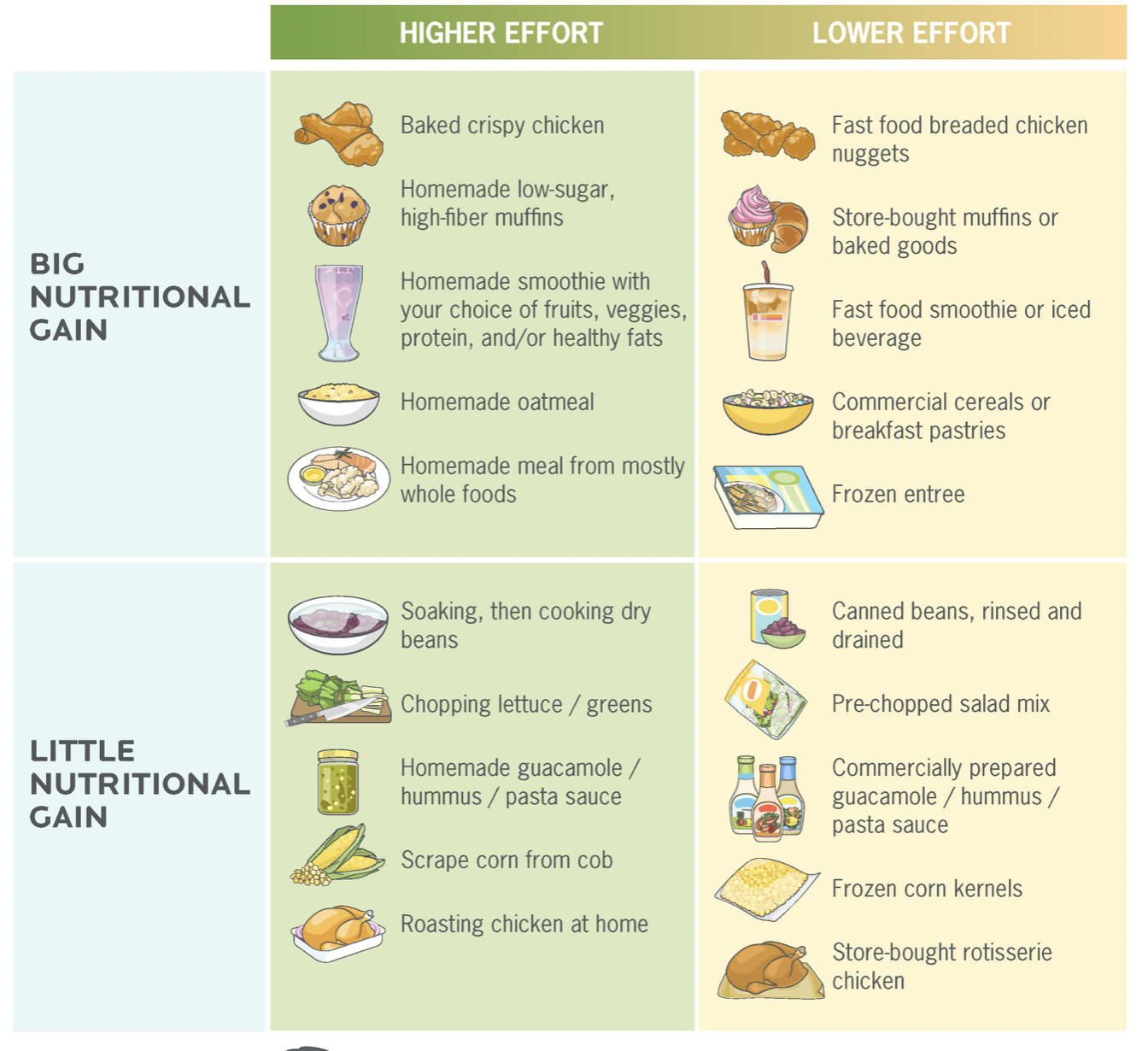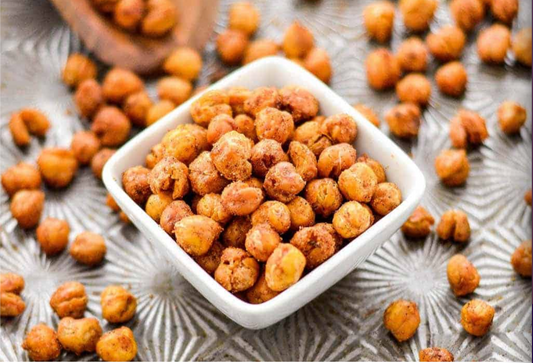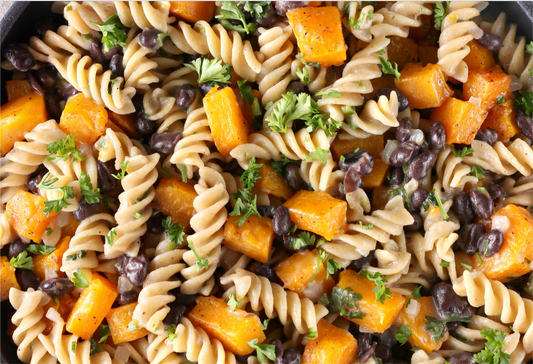How many times have you heard a health expert say “Eat fewer processed foods!”. It’s such a common thing to hear that you may have even tuned it out completely.
Considering how often it’s said, maybe there’s a reason why. Do you know?
Plus, what even is a processed food anyway? How do we know what to keep in our diet and what to cut out?
Well, in this article you’ll learn that processing comes on a sliding scale and that there are some processed foods that may actually be okay to keep in your diet.
As you may know, we’re not here to flip your diet upside down and get you to start eating things that you hate. Instead, let’s find out easy swaps we can make to increase our nutrient consumption, increase satiety and overall health.
What are processed foods?
As mentioned, food processing exists on a continuum that goes from highly-processed to whole foods. Lots of people will be quick to throw all processed foods in the “never” category and while that may seem like the healthiest option, it’s highly unsustainable. Eating a diet of 100% whole, 1 ingredient foods is hard to maintain for the majority of people and it would likely not fit into your busy schedule.
Examples of highly processed foods:
- Ramen noodles
- Gummy bears
- Chicken nuggets
- Fast food
- Pancake mix
- Puff cereal
Examples of moderately-processed foods
- white rice
- fruit juice
- whole grain breads
Examples of minimally-processed foods
- frozen veggies
- canned soup
- canned tuna/fish

3 benefits of eating minimally-processed foods
You’ll see a lot of diets out there, but one thing most, if not all, of them have in common is the consumption of minimally-processed foods. And there’s a good reason why…
1 - They will help you meet your nutritional needs.
The more a food is processed, the higher the added sugars, sodium, refined starches and unhealthy fats and the less fibre and essential nutrients like fatty acids.
2 - Your health will thank you
A diet rich in minimally-processed foods is associated with lower rates of
- depression
- heart disease
- type 2 diabetes
- cancer
3 - You’ll more easily regulate weight and appetite
Minimally processed foods contain more satiety boosting vitamins and minerals to help you feel fuller for longer and to help manage cravings throughout the day.
Whole foods also take longer to eat. Digestion starts in the mouth, and up to 15% of your total calorie burn comes from your body’s digestion. The more processed the food, the less work our body needs to do to break it down. Simply chewing food for longer (like with veggies, fruits and meats) will not only burn extra calories but will help keep you satisfied.
Whole or minimally-processed foods will also get you full on lesser calories. A medium french fries at Mcdonalds has 220 calories while a baked potato has 100. More volume, more nutrients and less empty calories.
Now before you go cutting all these things out of your diet, remember this is real life. Real, messy, emotional, social, exciting life. And so it’s likely not in your best interest to actually cut everything out.
Here are three reasons why:
1 - Some processed foods are actually good for you. Protein powders, hummus and tofu are all examples of foods that have been processed but still are rich in protein and nutrients. They’re also cost effective and easy sources of protein to add to your diet.
2 - Processed foods taste amazing! Let’s not beat around the bush here - I’m here for pizza and wings. Especially if its around friends after a long week. Being social is an important part of your overall health. Eating foods that are delicious while making memories and catching up with loved ones is never something you should cut out completely.
3 - Progress is always better than perfection
Instead of trying to make the perfect choice, look at food options on a spectrum and try to make choices that are just a “little bit better”

Lastly, here are three ways you can increase your consumption of minimally-processed foods.
First, figure out what’s worth the trade off. Some minimally processed foods take way more time to prep than others. And the benefit may not even be worth it. A great example is buying fresh, organic lettuce from a farmers market vs. bagged lettuce at the grocery store. Save yourself the time of chopping!

Second, make sure you’re taking as least SOME time to prep. Adding more minimally processed foods WILL take more time than running through the drive though - of course. But this is where the massive nutritional gains come in.
Create your weekly menu, try batch cooking or freezing some lunches and dinners ahead of time.
Last, experiment and take notes.
As you increase the variety of your diet, take note of things that you enjoy and things you don’t care for. Don’t try and force yourself to eat something that is supposed to be good for you just for the sake of “trying to be healthy”. You’ll never see kale in my fridge.
Instead, take note of recipes and meals you make that you enjoy and add those into your rotation more often. And then, try one or two new meals every few weeks!
Is this helpful? Share this article with a friend or family member you feel would benefit from this! As always, if you’re looking for coaching on your health and weight loss journey, book a 10 minute discovery call with us. We’re always here to chat and take care of you!




